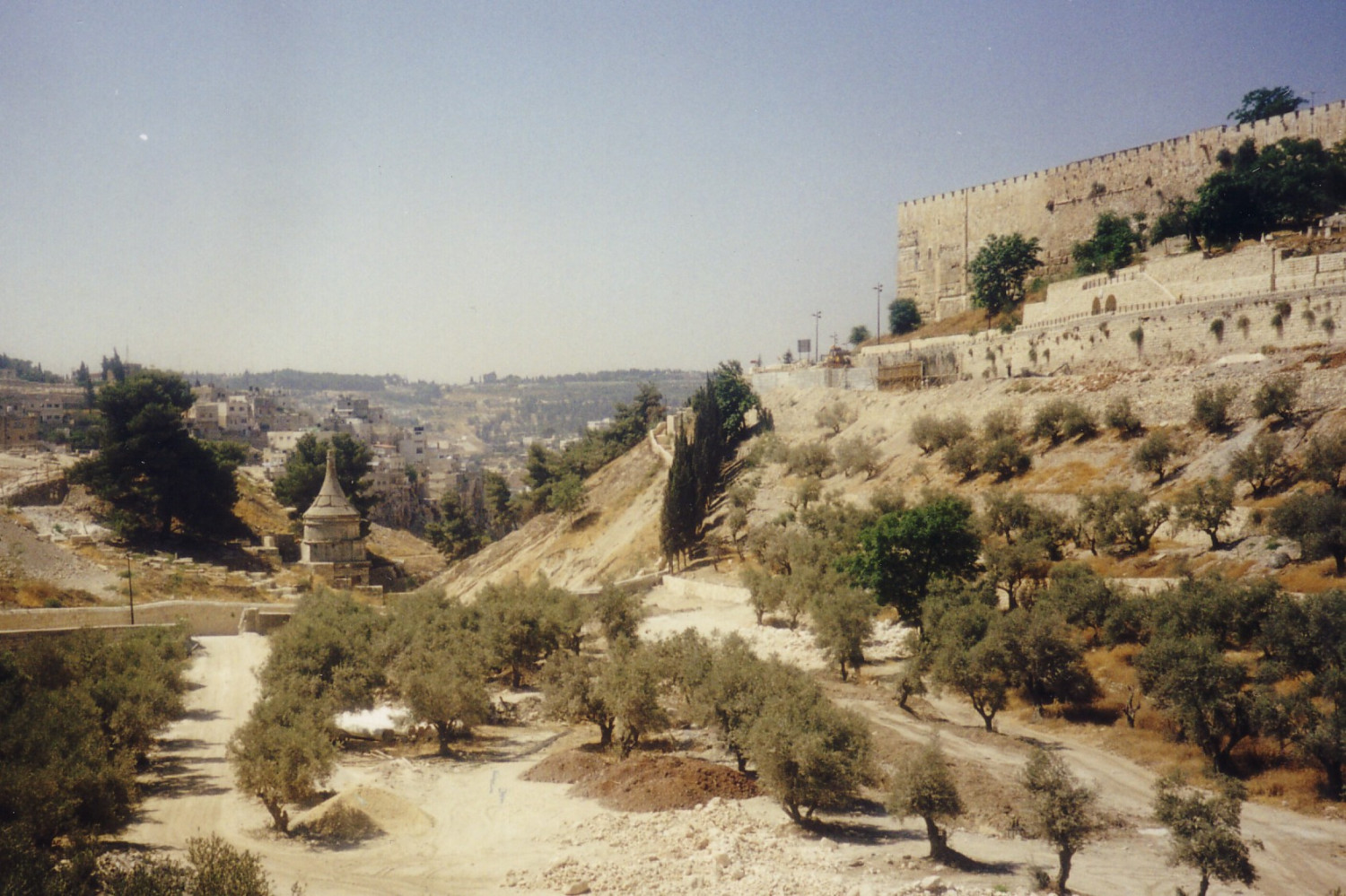18 Aug. Absalom is killed at the Battle of Ephraim
“David counted his men and placed over them commanders of thousands and commanders of hundreds. He sent the troops out in three groups. Joab commanded one-third of the men. Joab’s brother Abishai son of Zeruiah commanded another third. And Ittai from Gath commanded the last third.”
“King David said to them, ‘I will also go with you.’ But the men said, ‘You must not go with us! If we run away in the battle, Absalom’s men won’t care. Even if half of us are killed, Absalom’s men won’t care. But you’re worth 10,000 of us! You can help us most by staying in the city [of Mahanaim]…”
“So the king stood at the side of the gate as the army went out in groups of 100 and 1,000. The king commanded Joab, Abishai and Ittai, ‘Be gentle with young Absalom for my sake.’ Everyone heard the king’s orders to the commanders about Absalom.”
“David’s army went out into the field against Absalom’s Israelites, and they fought in the forest of Ephraim. There David’s army defeated the Israelites. Many died that day – 20,000 men. The battle spread through all the country, but that day more men died in the forest than in the fighting [elsewhere].”
“Then Absalom happened to meet David’s troops. As Absalom was riding his mule, it went under the thick branches of a large oak tree. Absalom’s head got caught in the tree, and his mule ran out from under him. So Absalom was left hanging above the ground.”
“When one of the men saw it happen, he told Joab, ‘I saw Absalom hanging in an oak tree!’ Joab said to him, ‘You saw him? Why didn’t you kill him and let him fall to the ground? I would have given you a belt and ten pieces of silver.’ The man answered, ‘I wouldn’t touch the king’s son if you gave me 1,000 pieces of silver. We heard the king command you, Abishai and Ittai, “Be careful not to hurt young Absalom.” If I had killed him, the king would have found out, and you would not have protected me!’”
“Joab said, ‘I won’t waste time here with you!’ Absalom was still alive in the oak tree, so Joab took three spears and stabbed him in the heart. Ten young men who carried Joab’s armour also gathered around Absalom and struck him and killed him.”
“Then Joab blew the trumpet, so the troops stopped chasing the Israelites. Then Joab’s men took Absalom’s body and threw it into a large pit in the forest and filled the pit with many stones. All the Israelites ran away to their homes.”
“When Absalom was alive, he had set up a pillar for himself in the King’s Valley. He said, ‘I have no son to keep my name alive.’ So he named the pillar after himself, and it is called Absalom’s Monument even today.”
“Ahimaaz son of Zadok said to Joab, Let me run and take the news to King David… Joab answered Ahimaaz, ‘No, you are not to take the news today, because the king’s son is dead.’ Then Joab said to a man from Cush, ‘Go tell the king what you have seen.’ …”
“Then the Cushite arrived. He said, ‘Master and king, hear the good news! Today the LORD has punished those who were against you!’ The king asked the Cushite, ‘Is young Absalom all right?’ The Cushite answered, ‘May your enemies and all who come to hurt you be like that young man!’”
“Then the king was very upset, and he went to the room over the city gate and cried. As he went, he cried out, ‘My son Absalom, my son Absalom! I wish I had died and not you. Absalom, my son, my son!’”
(2 Samuel 18:1-33)

We’re not told in the Biblical account how long David sheltered at Mahanaim before his army challenged Absalom’s forces in the Forest of Ephraim, but it must have been long enough for Joab and David’s commanders to stir up support from other parts of the country and rally together thousands of troops to fight for King David.
In the ensuing Battle of Ephraim, David’s forces under Joab, Abishai and Ittai secured a resounding victory over the supporters of Absalom. Many thousands of Israelites were killed in the battle and in the ensuing skirmishes which extended out across neighbouring parts of Israel.
In the heat of the battle, Absalom got caught up in the boughs of an oak tree as his mule rode underneath, and he was spotted hanging there by one of David’s soldiers, who reported this to Joab. Joab asked why the man hadn’t killed Absalom, and was reminded that King David had specifically ordered his men not to harm his son Absalom.
Joab ignored the king’s orders, found Absalom, and stabbed him to death with three spears. When King David heard of the death of Absalom, he was overcome with grief for his wayward son and cried out, “My son Absalom, my son Absalom! I wish I had died and not you. Absalom, my son, my son!” (2 Samuel 18:33)
David in due course returned to Jerusalem. Although the Bible tells us that Absalom was buried in the Forest of Ephraim (see 2 Samuel 18:17), many have believed that David re-buried Absalom’s body in the King’s Valley (the upper part of the Kidron Valley), where what was thought to be his tomb for many years can still be seen today. In fact, the distinctive bottle-top shaped ‘Absalom’s Monument’ below the walls of the old city of Jerusalem (see 2 Samuel 18:18), actually dates from the 4th or 5th century BC - some 500 years after Absalom's death.
The photo shows ‘Absalom’s Monument’ in the Kidron Valley outside the walls of Jerusalem.
You can read more about David and Absalom @ https://www.thebiblejourney.org/biblejourney2/30-israel-becomes-a-kingdom-under-saul-and-david/absaloms-flight-amp-his-rebellion-against-david
